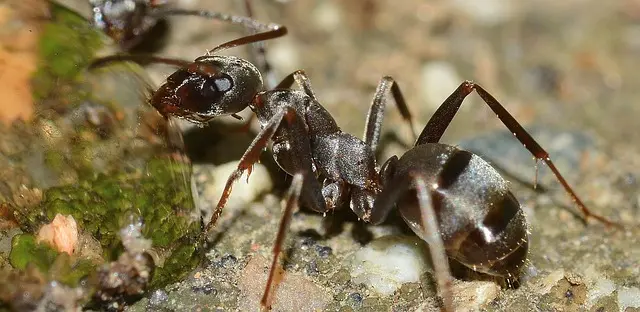Have you ever watched a line of ants marching across your kitchen counter, carrying crumbs ten times their size? It’s pretty amazing how strong these tiny creatures are! But how long can they go without food?
In this article, we’ll explore the fascinating world of ants and discover the surprising answer to this question. We’ll also learn about the different factors that can affect an ant’s ability to survive without food.
The Amazing World of Ants
Ants are social insects that live in colonies. Each colony has a queen ant, whose job is to lay eggs. The worker ants are all female and do all the work of the colony, such as finding food, caring for the young, and building the nest.
There are over 12,000 known species of ants, and they can be found all over the world except for Antarctica. Ants come in all shapes and sizes, from the tiny ant that lives in the rainforest to the giant ant that lives in the Amazon.
How Long Can Ants Survive Without Food?
The answer to this question depends on a few different factors, including the species of ant, the ant’s age, and the temperature. But in general, ants can survive for several weeks without food.
Here’s a breakdown of some factors that can affect how long an ant can survive without food:
- Species: Different species of ants have different metabolisms. Some species, such as the carpenter ant, can store more fat and can therefore survive longer without food. Other species, such as the acrobat ant, have a higher metabolism and need to eat more often.
- Age: Younger ants, which are still growing, need to eat more often than older ants.
- Temperature: Cold temperatures slow down an ant’s metabolism, so they can survive longer without food in cold weather. Hot temperatures speed up an ant’s metabolism, so they need to eat more often in hot weather.
How Do Ants Survive Without Food?
So how do these tiny creatures manage to go for so long without food? Here are a few reasons:
- Fat Stores: Many ants store fat in their bodies, which they can use for energy when food is scarce.
- Body Size: Smaller ants have a lower metabolism than larger ants, so they need less food to survive.
- Social Colony: Ants live in colonies, which means they can share food. If one ant finds a food source, it will share it with the other ants in the colony.
Interesting Facts About Ants
- Ants are one of the strongest insects in the world. They can carry up to 50 times their body weight!
- Ants communicate with each other using pheromones, which are chemical signals.
- Some species of ants can farm! They herd aphids, which are small insects that suck sap from plants. The ants protect the aphids from predators and then collect the sugary sap that the aphids produce.
Do Ants Ever Die of Starvation?
Yes, ants can die of starvation if they are unable to find food for a long period. However, this is not very common. Ants are very good at finding food, and they will travel long distances to find a food source.
Conclusion
Ants are amazing creatures that can survive for weeks without food. They have several adaptations that allow them to do this, such as fat stores, a low metabolism, and a social colony structure.
I hope you enjoyed learning about how long ants can survive without food!
Do you have any other questions about ants? Let me know in the comments below!
Additional Resources
- Wikipedia article on Ants: https://en.wikipedia.org/wiki/Ant_(insect
- National Geographic article on Ants: https://www.nationalgeographic.com/animals/invertebrates/group/ants/
- Live Science article on How Long Can Ants Live Without Food?: https://www.livescience.com/62222-how-long-can- ants-live-without-food.html
Would you like to learn more about the different species of ants? Or perhaps you’re curious about how ant colonies work? Let me know in the comments below!

